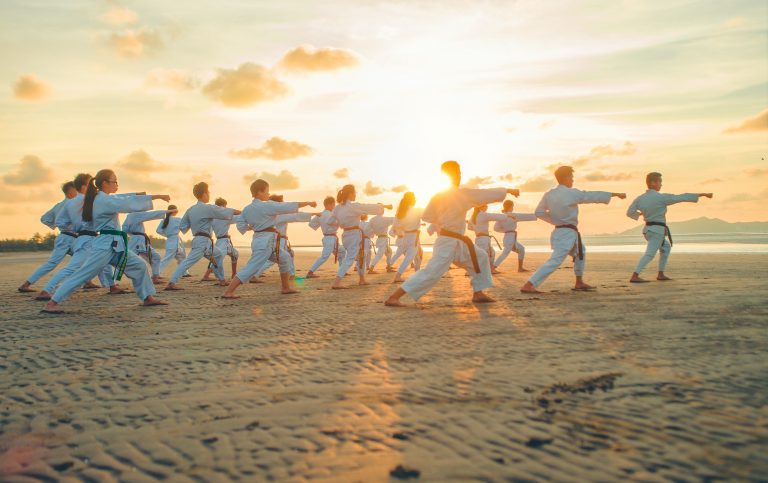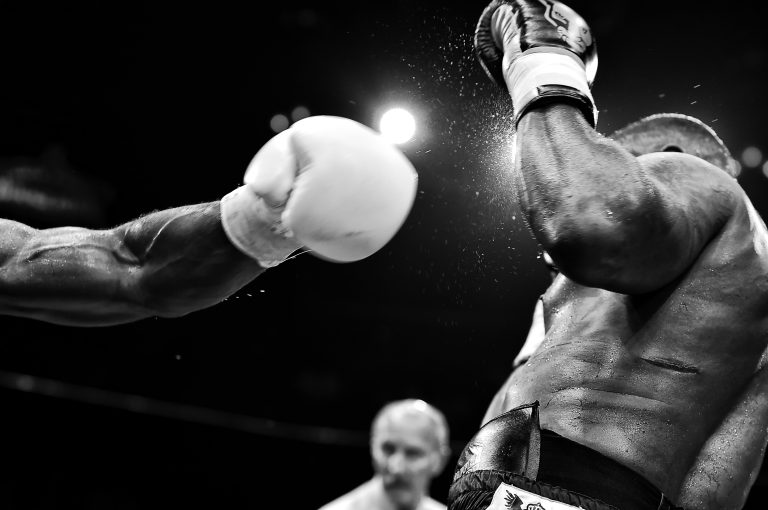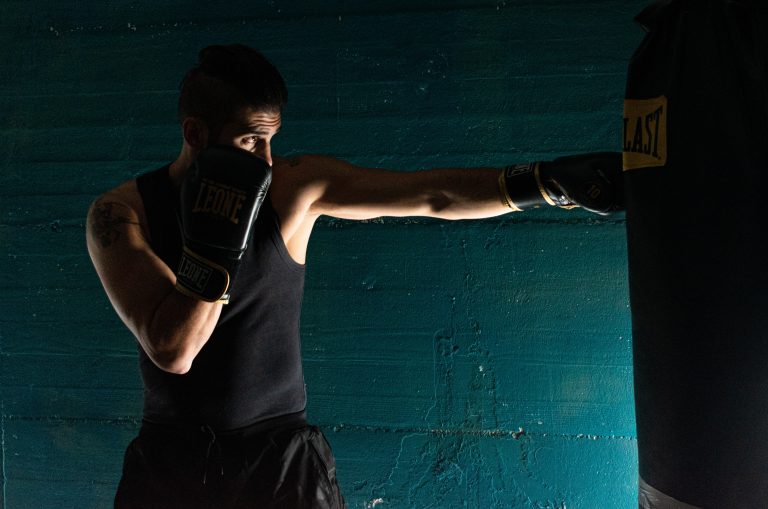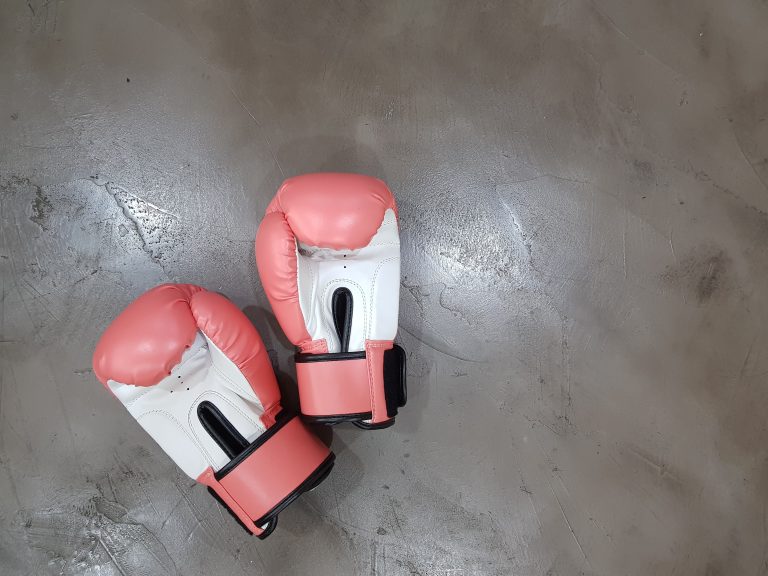Karate and Its Benefits for Children
Karate is a popular martial art based on Japanese martial arts, such as karate, judo and aikido, and is practiced by millions of people around the world. But, what makes karate so special is the unique way it combines physical and mental elements, offering important lessons and valuable benefits for both adults and children. In this blog post, we will discuss some of the reasons why kids should consider taking up karate, while highlighting its possible health benefits in both physical and mental terms.
What Is Karate?
Karate is a fighting system developed in Japan during the 20th century. It is a Japanese martial art that involves punching, kicking, blocking, and other striking techniques. Karate is divided into two categories: traditional and sport karate. Traditional karate focuses mainly on self-defense and physical fitness, while competitive sport karate incorporates a competitive element where students can participate in tournaments.
Health Benefits of Karate for Kids
Karate is a great physical activity for children because it is an excellent form of exercise and encourages healthy habits such as strength training, stretching and flexibility. Additionally, it teaches children useful self-defense techniques that can help them stay safe. But karate goes far beyond physical benefits. Below are some of the ways in which karate can help children develop both mentally and physically.
1. Improved Self-esteem
Karate teaches children that they can achieve goals and reach success if they work hard. As they progress and meet their goals, they will gain a sense of accomplishment which can lead to improved self-esteem and confidence. Successful karate students learn to respect their instructors, peers, and themselves, as well as to have high expectations for their performances. By seeing their accomplishments as tangible results, they can gain a greater appreciation of their own potential.
2. Enhanced Concentration and Focus
Karate requires a great deal of focus, both from children and from their instructors. Karate classes are designed to teach students to pay attention to their surroundings, be aware of all their movements, and focus on form and technique without getting distracted. This type of concentration trains the mind to improve its ability to stay focused during important tasks such as school work or studying for exams.
3. Improved Coordination
Karate classes provide children with an environment where they are encouraged to practice techniques over and over again until they can execute them with precision and accuracy. This repetition helps them build coordination skills and improve their motor movements. The more reflexes they build up through practice, the more they become in control of their own coordination skills. Karate classes also train children to pay attention to their surroundings and plan ahead with their movements in order to achieve maximum effect.
4. Stress Relief
Karate classes are a great way for children to relieve stress by focusing on something aside from their daily worries.The physical exercise itself has stress-relieving properties,, while the act of performing specific movements helps them disconnect from their worries for a brief moment in time. Additionally, since karate classes typically take place in a friendly environment, kids can benefit from socializing with kids outside of their usual circle of friends or family—a great way to reduce stress in an enjoyable way.
Conclusion
Karate is a great form of physical activity, but it goes far beyond physical benefits. It helps children improve their self-esteem, coordination, concentration and focus, all while reducing stress levels. It’s a perfect activity for kids who want to learn martial arts in order to protect themselves while also improving physically and mentally. By properly committing to karate classes and following the guidance of an experienced instructor, kids can gain a wide range of benefits that will serve them both now and in the future.
Frequently Asked Questions About Karate and Its Benefits for Children
Karate is a martial art that originated in Japan and has become popular all over the world. Some parents consider enrolling their children in karate classes, but they may have many questions about the benefits of this martial art for their kids. In this article, we will answer some of the most frequently asked questions about karate and its benefits for children.
What is Karate?
Karate is a martial art that involves using your hands, feet, and other parts of your body as weapons for self-defense. Karate techniques include punches, kicks, knee strikes, and open-hand techniques.
What are the Benefits of Karate for Children?
Karate has many benefits for children, both physical and mental. Here are some of them:
Physical Benefits
1. Improved Coordination: Karate requires precise movements and coordination between different body parts. Practicing karate can improve a child’s coordination and balance.
2. Increased Strength and Flexibility: Karate movements involve using different muscles in the body. As a result, practicing karate can help to increase a child’s strength and flexibility.
3. Cardiovascular Fitness: Karate involves continuous movement and can be a great cardiovascular exercise. Children who practice karate can improve their cardiovascular fitness and endurance.
4. Self-Defense Skills: Karate can teach children how to defend themselves in different situations. This can help to increase their confidence and sense of security.
Mental Benefits
1. Improved Discipline: Karate requires strict adherence to rules and the code of conduct. Practicing karate can help to improve a child’s self-discipline and focus.
2. Increased Self-Confidence: Karate can help children to improve their self-esteem and self-confidence. As they learn new skills and techniques, they become more confident in their abilities.
3. Stress Relief: Karate can be a great way to relieve stress and tension. The physical activity involved in karate can help to release endorphins, which are natural mood boosters.
At What Age Can Children Start Learning Karate?
Children can start learning karate as early as four years old. However, it is recommended that parents wait until their child is at least six years old before enrolling them in formal karate classes. Children younger than six may not have the attention span necessary to follow the instructions and focus on the training.
What Equipment is Needed for Karate?
For karate training, children will need a karate uniform called a gi. The gi consists of a jacket, pants, and a colored belt that indicates their level of proficiency. Children may also need protective gear such as hand wraps, gloves, shin guards, chest protectors, and headgear.
What Should Parents Look for in a Karate School?
Parents should look for a karate school that has experienced instructors who are knowledgeable in teaching children. The school should also have a safe and clean training environment and should focus on teaching the values of discipline, respect, and sportsmanship.
How Often Should Children Attend Karate Classes?
The frequency of karate classes will depend on the child’s age and skill level. Typically, children attend karate classes two to three times a week. However, some schools may offer more or fewer classes depending on their curriculum.
Conclusion
Karate can be a great activity for children, offering physical and mental benefits such as improved flexibility, self-defense skills, and self-confidence. However, parents should consider the child’s age, equipment needs, and the quality of the karate school before enrolling them in classes. We hope that this article has provided you with the answers to some of the most frequently asked questions about karate and its benefits for children.
Inhaltsverzeichnis






